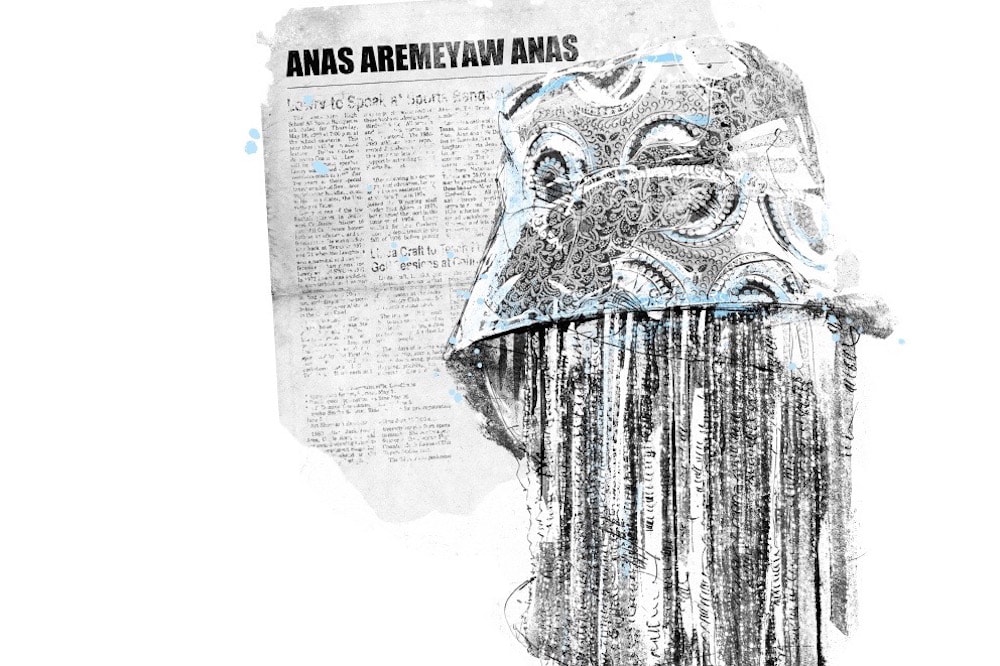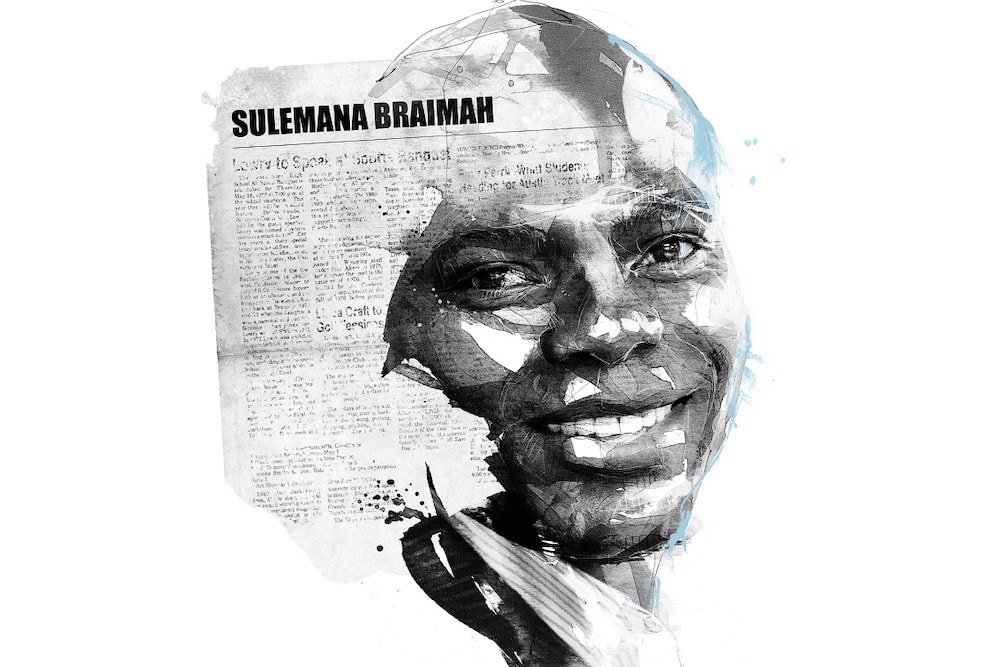Anas Aremeyaw Anas is probably Africa's most popular investigative journalist. One who has made it his mission to name, shame and see justice delivered to human rights abusers and corrupt officials.
"Let's put whatever little we have at our disposal, to good use - a good start is to challenge the tradition and dismantle the status quo that breeds corruption..."
Often referred to as the “James Bond of journalism,” Ghana’s Anas Aremeyaw Anas is an investigative reporter like no other. For nearly two decades Anas has been on a personal mission to “name, shame and jail” abusers. Since he typically wears disguises to carry out investigations, very few people know his identity.
A claim that his identity was uncovered provoked a strong reaction amongst the public who immediately put out an #IAmAnas social media campaign with pictures of themselves or random people and even comical images of entities resembling the trademark covered face of Anas.
Writing for the BBC, former journalist Elizabeth Ohene talked about how Ghanaians resort to humour to cope with the tragedy of corruption. She then coined a few corruption related terms while paying tribute to the undercover journalist.
“I do not know when these words will make it into Wikipedia or the Oxford English Dictionary but for the moment you can take it from me that:
- To go undercover is to anas;
- To make secret recordings is to anas-anas;
- To wear disguises is to do an anas;
- To be caught in the act is to be anased and
- To have someone exposed taking bribes is to have that person being given the full Anas Aremeyaw Anas.”
When Anas publishes new investigations, newspapers sell out within hours. When he releases films of his undercover stings, he packs theatres across the country and causes traffic jams. Ghanaians are so puzzled by Anas’s ability to capture evidence that some even believe he is a spirit with supernatural abilities. On a global scale, Anas has been described as Africa’s best investigative journalist, made popular by his collaborations with Al Jazeera. His work has been praised by Barack Obama, Bill Gates and Bishop Desmond Tutu.
Anas’s work has earned him a reputation for breaking stories that make an impact. “Journalism is about results. It’s about affecting your community or your society in the most progressive way,” he says. For him, this has meant going after the likes of child abusers, human traffickers and corrupt officials.
His most influential work to date is Number 12 – a 2018 documentary exposing rampant corruption spread across numerous countries – in the world of Africa’s most beloved sport – soccer.
The almost 2 hour long documentary implicated almost the entire football administration in Ghana and exposed referees and officials from 15 countries accepting bribes in exchange for fixing club and international matches. In Ghana it took down the president of the football association, Kwesi Nyantakyi, who was captured on film accepting a bribe, and the scandal ultimately resulted in the dismantling of the national association.
The soccer exposé got Anas and his investigation unit, Tiger Eye, international praise, but there is a strong suspicion that it is the scandal that resulted in the targeted assassination of his colleague Ahmed Hussein-Suale Divela. But far from deterring him, it strengthened Anas’ resolve: “It leads me to be more alert, to be critical and serious but it hasn’t had any meaningful impact [on my work].”
Anas’s big break came when he was still a journalism student interning at The New Crusading Guide, a weekly investigative newspaper. He knew that police routinely accepted bribes from street hawkers who were illegally selling their goods on Accra roads, and Anas went undercover to expose them. After publishing a scandalous story, he became the newspaper’s lead investigative reporter, and today, he’s its co-owner.
Over the years, Anas’s high-profile stories have shocked the country. In 2006, he revealed corruption inside a passport agency that fabricated documents for officials, including the president. In 2007, he went undercover as a janitor in a brothel to reveal that teenagers were working as prostitutes.
In a 2009 investigation, Anas spent weeks posing as a mentally ill patient in Ghana’s biggest psychiatric institution. He documented narcotic drug peddling, abuse, and medical negligence leading to the death of patients. In 2010, one of his investigations revealed child abuse in a state-run orphanage.
After a two-year investigation ended in 2015, Anas revealed his biggest story yet: judges in Ghana were accepting bribes of sex and money. His documentary – Ghana in the eyes of God; Epic of Injustice – was shown in the capital, Accra, and then screened for free across the country. Based on hundreds of hours of videotapes documenting crime and corruption, it appears to show judges and court workers taking bribes from litigants, as well as some demanding sex, to manipulate justice.
His evidence implicated more than 30 judges and 170 judicial officers, and led to the suspension of seven of the country’s High Court judges.
Chameleon, a 2014 documentary about Anas, reveals how his team collaborates with Ghana’s police force. Typically, this involves Anas going undercover with hidden cameras to document the alleged abuse or corruption while police standby to make arrests. Anas has also been contracted for work by the government of Ghana, raising questions about conflict of interest, and whether he is crossing ethical lines as a journalist. He dismisses the criticism, insisting that what he does is necessary in a country with weak institutions. “If I am a journalist and I cannot serve my country, who else can I serve? So if my government calls upon me to help, I will serve,” he says.
Anas goes beyond publishing exposés to ensuring that the evidence he collects is used in prosecutions. “What I have done is take one step forward to help law enforcement institutions to arrest and punish the bad guys,” he explains. Anas completed law school in 2008. He’s not interested in practising law, but rather with ensuring it’s used to the full effect when he presents evidence in court; which he routinely does.
“My work has seen so many people thrown into jail and lose their livelihoods, so there are angry people out there after our lives,” Anas shares. His private investigation company Tiger Eye, which employs a team of investigators and journalists, is nondescript, located in a residential building in the bustling city of Accra. He doesn’t have a permanent home, moving frequently for his protection. For public appearances, his typical look includes either a hat with dangling beads to conceal his face, or a hooded robe. Sometimes, there are several hooded men who stand alongside Anas, acting as a diversion and doubling as bodyguards.
Despite the horrors Anas has seen, some of which he shares in this TED talk, his determination is strong. “This will not stop. I’m going to carry on with this kind of journalism, because I know that when evil men destroy, good men must build and bind.”
Illustration by Florian Nicolle

